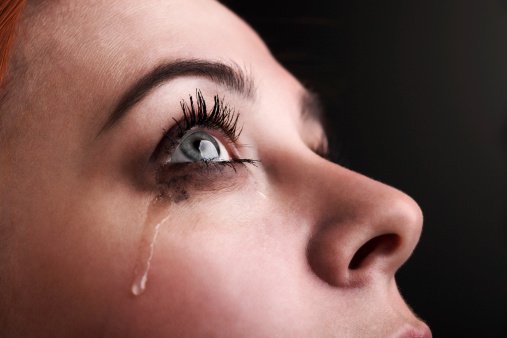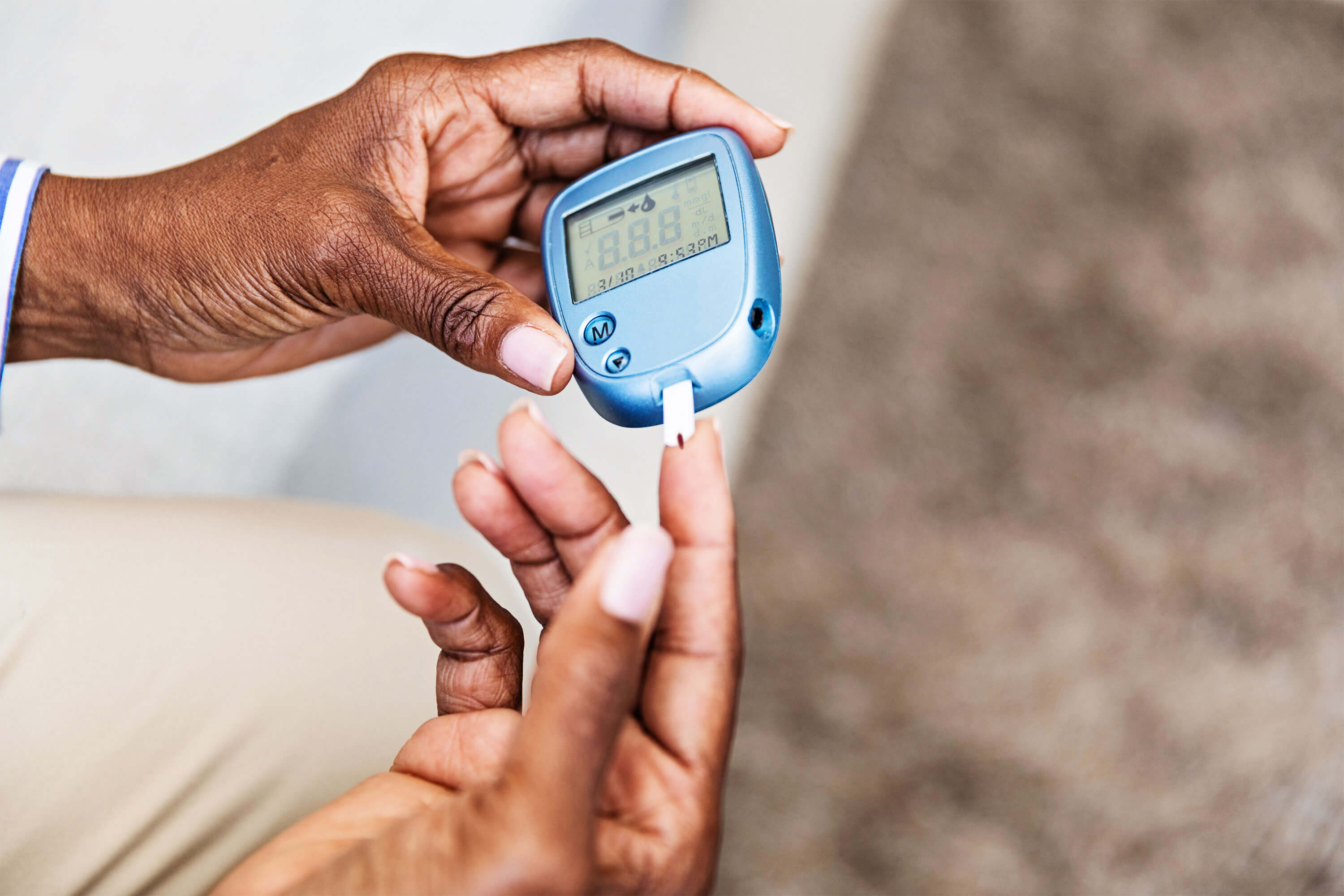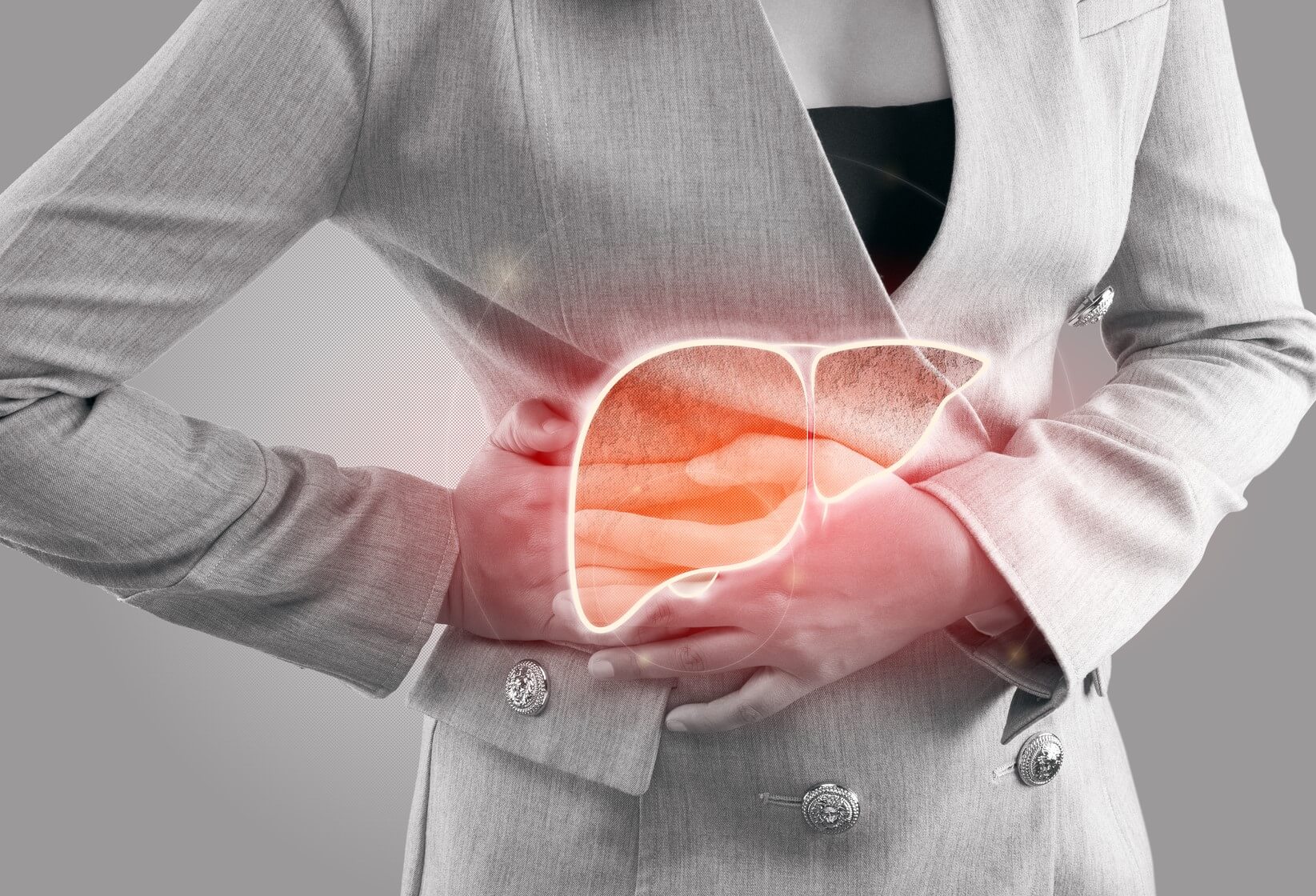Is crying good for you? The ups and downs of emotional tears
Thu 22 Nov 2018, 16:07:47

Let's take a look.
What tears are made of
Whether you're welling up or not there are always tears in your eyes — they're the film that protects your peepers from drying out, and they're more than just salty water.
They're actually made up of three layers: a layer that sits against the eye's surface and helps tears stick to the eye, a watery layer that forms the bulk of the tear film, and a lipid (fat) layer which helps stop the tears evaporating, explained Laura Downie, a vision scientist from the University of Melbourne.
"The tear film is highly complex biological fluid; nearly 1,000 different constituents have been identified, including proteins, lipids, electrolytes, mucins, hormones and growth factors," Dr Downie said.
Your body makes tears on demand at a rate of about 1 to 3 microlitres per minute, stimulated through a feedback loop from the hypothalamus in the brain, Dr Downie said.
Your eyes are always producing these fluids to keep your eyes from drying out, but sometimes your lacrimal glands — where the watery part of the tear film comes from — have to work overtime.
It might be a reflexive response to flush an eyelash or piece of dust that's found its way into the eye.
Or it might be that you're weeping as an emotional response.
Onion tears are different to emotional tears
Not all tears are created equal, chemically speaking. The tears you shed when you're crying because of emotions have a different make-up to what comes out of your eyes on a windy day or when you're chopping onions.
Emotional tears contain more of some hormones, including adrenocorticotropic hormone (ACTH), which tells the body to release the stress hormone cortisol, Brisbane psychologist Christine Bagley-Jones said.
"Cortisol is the hormone most responsible for looking after us if we're in trouble or if we need that extra bit of energy, so it's most prevalent when we have that fight or flight experience," Ms Bagley-Jones said.
"So at the physiological level it is evident that crying does expend a build-up of this hormone."
If you don't process these stress hormones, they can manifest in other ways, Ms Bagley-Jones said, such as heart palpitations, hyperventilation, and even panic attacks.
So, having a cry can be a less distressing way of expending those chemicals. It's not the only way though.
"Exercising, journaling or good, deep, frank discussions with people can also be very medicinal," she said.
Other things are happening when you're crying for emotional reasons too — you might find yourself breathing differently, your muscles might shake, your throat might tighten and you might make noises you wouldn't otherwise make.
Why do humans cry?
Some experts think we might be the only animals that cry for emotional reasons.
It could be because we have such long childhoods, where we're reliant on others for help, theorised Ad Vingerhoets, a Dutch clinical psychologist who has studied crying in detail.
Tears on a highly visible part of the body — the face — are a way
of signalling we need help without necessarily making noise that might attract predators.
of signalling we need help without necessarily making noise that might attract predators.
Showing vulnerability has been beneficial for humans from an evolutionary point of view because we are such intensely social animals, Professor Vingerhoets said in a 2015 talk.
Crying is a way of asking other humans for help, or for showing empathy with someone who needs help.
That's why we might cry when we're sad or feeling helpless, but why you also might cry when you're empathising with someone else's situation or even feeling overwhelmed with a good emotion — the way you might cry with joy at a wedding or the birth of a baby.
So from a social perspective, yes, crying can be good for you, Ms Bagley-Jones said.
"It helps us in packs to find a way to group together, it can solicit sympathy or empathy and it can aid in establishing trust and be a bonding experience," she said.
"People will more likely trust a person that has that capability of showing those kinds of emotions.
Letting the tears flow can also improve your mood — but it won't always happen straight away.
In one study by Professor Vingerhoets and colleagues, participants rated their mood, then watched a sad movie that made them cry.
Straight after crying, the participants reported feeling worse than they did before, but within 20 minutes they were feeling better than they were before the movie and by the 90-minute mark they were even more positive.
But before you go home to rewatch The Notebook with a box of tissues, Ms Bagley-Jones said many of the benefits of crying came from being able to feel and express strong emotion, and not just from the physical act of weeping.
"Watching a sad flick ... isn't hugely beneficial because you're still not learning how to expend the built-up chemicals response that's no longer required in your body, which happens with tears when you're upset in real life," she said.
The downsides of crying
The physical downsides of crying are pretty straightforward: puffy eyes, splotchy skin and a headachy feeling that can be chalked up to the strong contractions of your facial muscles while you weep and pressure in your sinuses from the runny nose that accompanies a tear-fest.
But there can also be social costs to crying, depending on the context you're crying in.
Ms Bagley-Jones pointed out that while expressing your emotions with tears every now and again is healthy, crying too frequently or at inappropriate times can become tiresome for the people around you and affect your relationships.
"Overcrying may suggest a lack of emotional regulation. That's where your emotions become the boss of you rather than the other way around," she said.
"By not being able to manage difficult situations where some emotional strength would be welcomed, other people may grow a little bit weary of you.
Finding balance and being able to express a full range of emotions is the key, she said.
"Being open and authentic and having that real response to life's ups and downs but still ultimately being at the helm of your emotional management," Ms Bagley-Jones said.
No Comments For This Post, Be first to write a Comment.
Most viewed from Health
AIMIM News
Latest Urdu News
Most Viewed
May 26, 2020
Which cricket team is your favourite to win the T20 World Cup 2026?
Latest Videos View All
Like Us
Home
About Us
Advertise With Us
All Polls
Epaper Archives
Privacy Policy
Contact Us
Download Etemaad App
© 2026 Etemaad Daily News, All Rights Reserved.

























.jpg)
.jpg)
.jpg)


